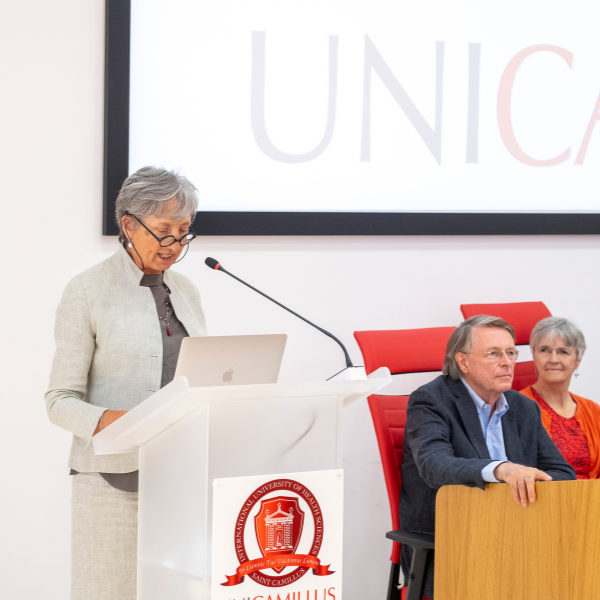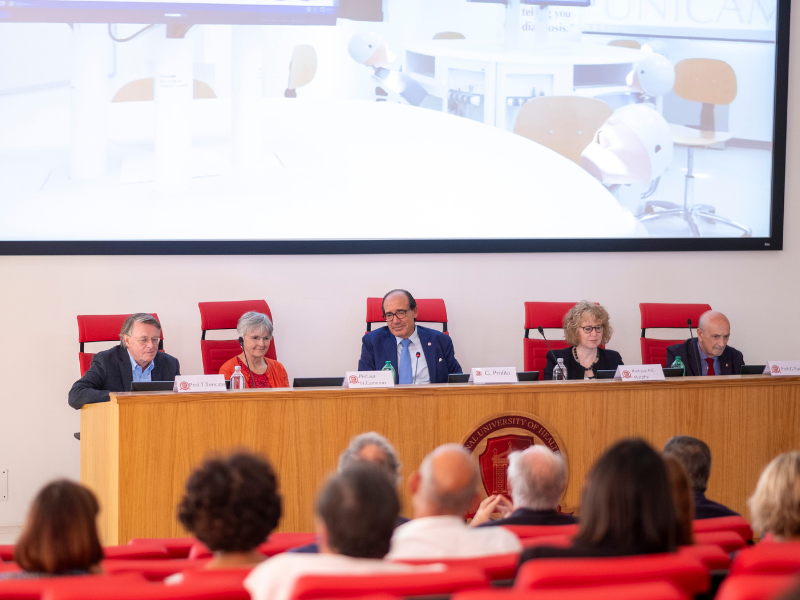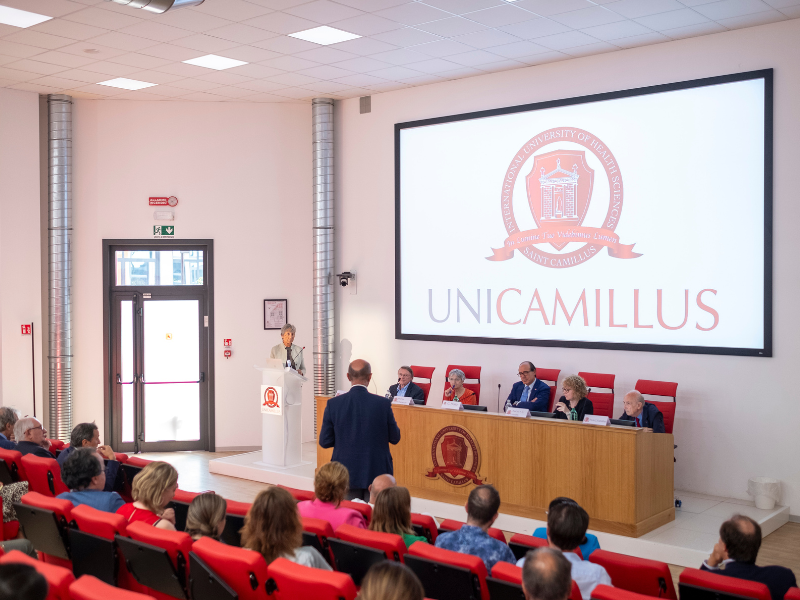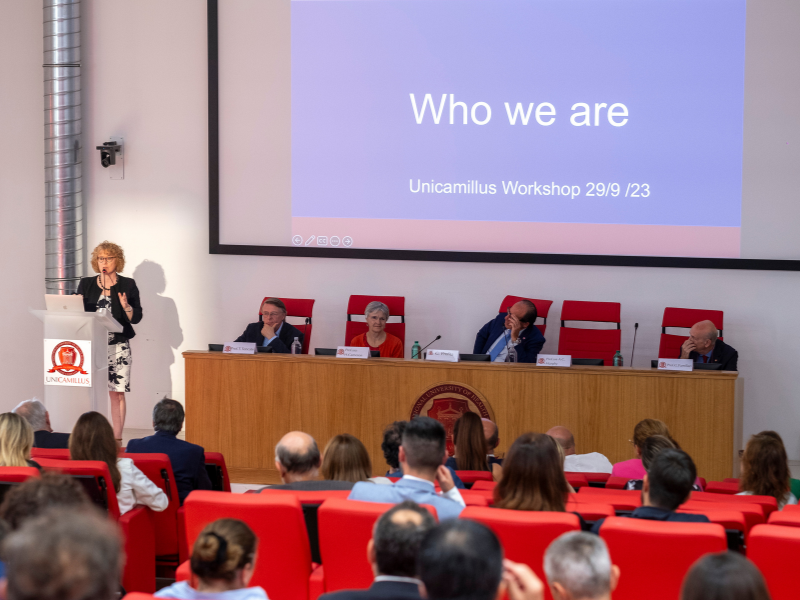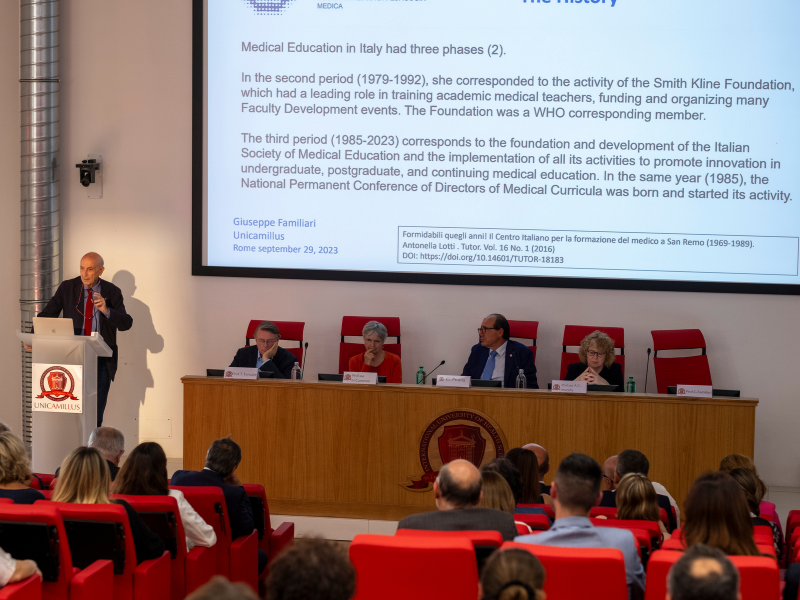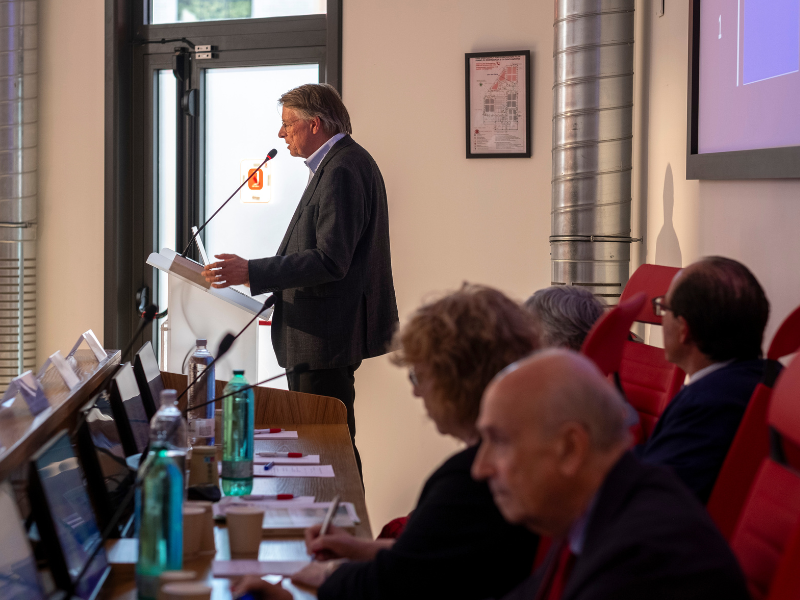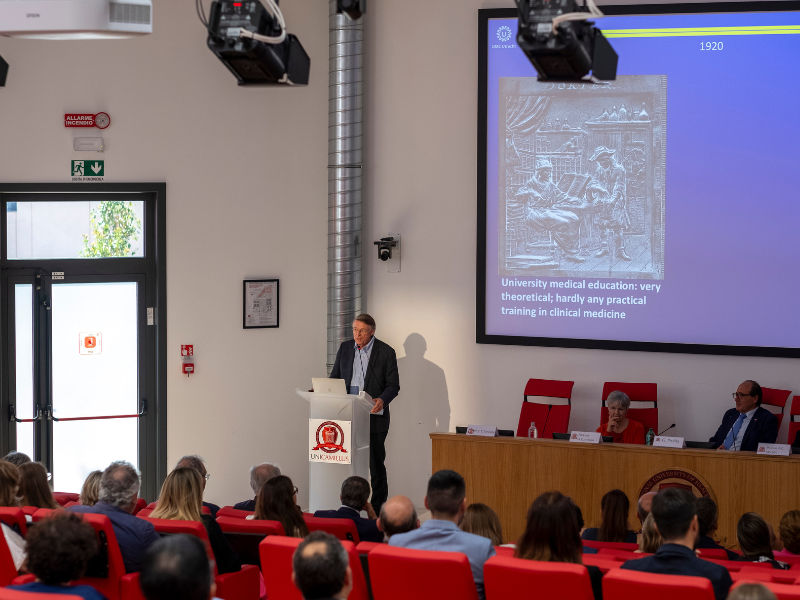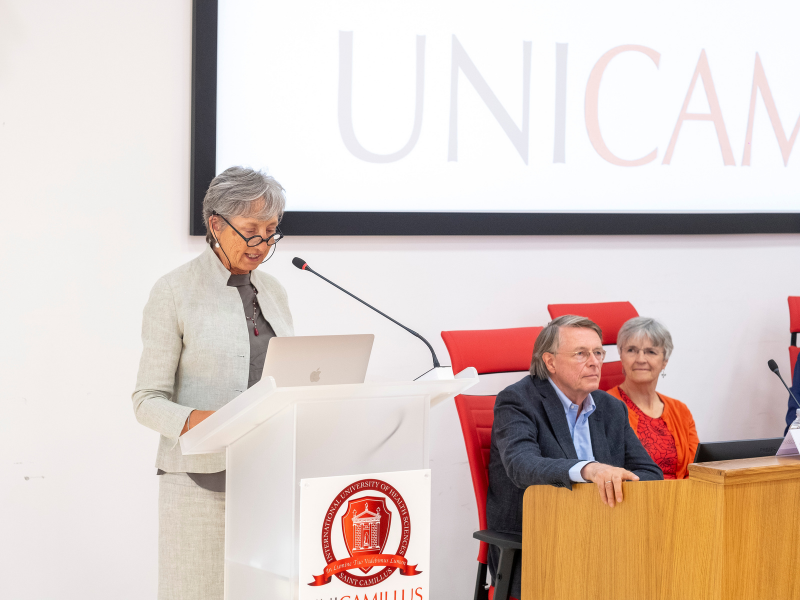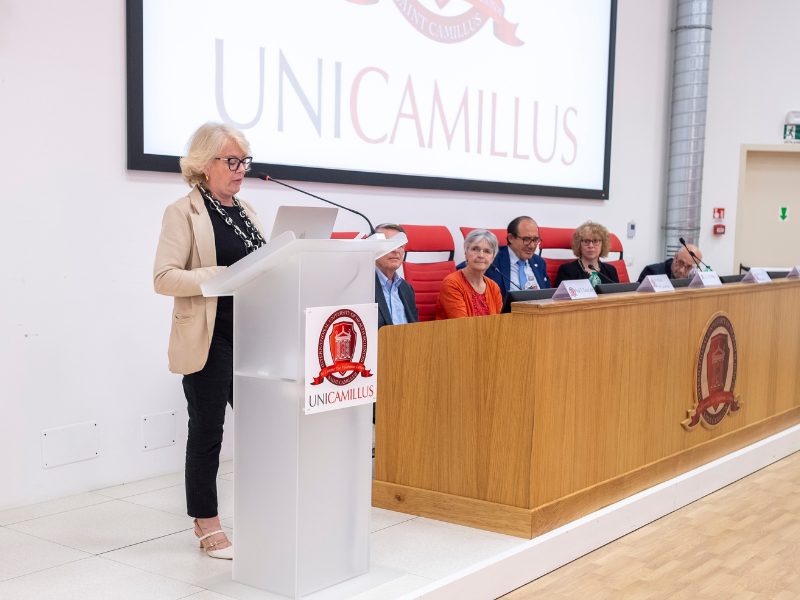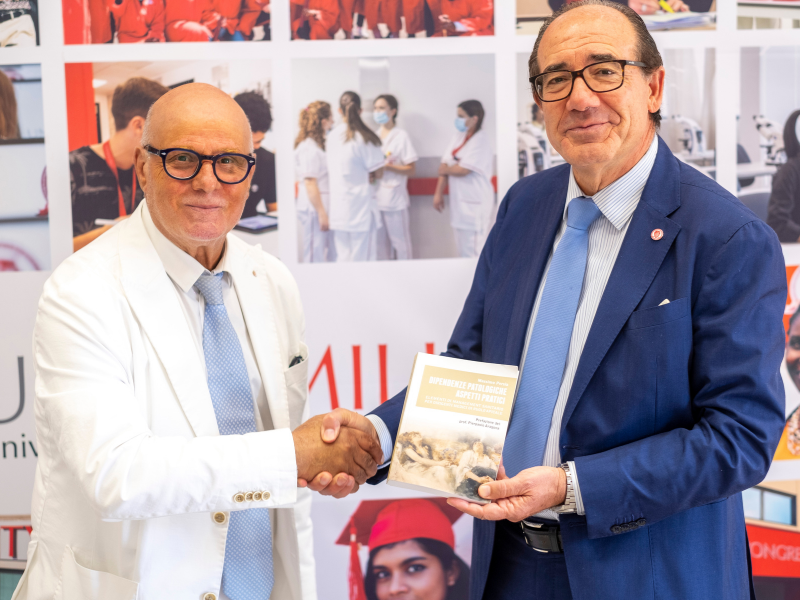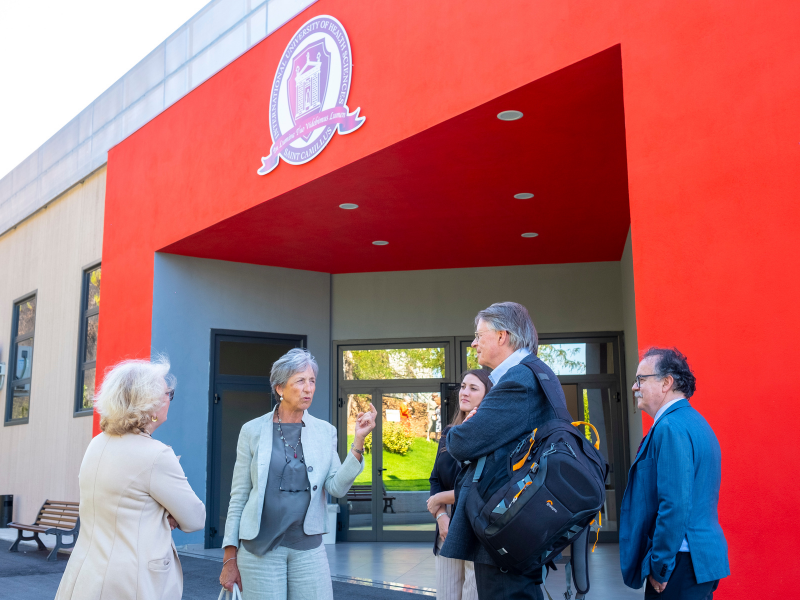The discourse surrounding medical pedagogy has finally found its place at UniCamillus. For some time now the medical and scientific community has been discussing and comparing diverse methodologies employed in imparting medical knowledge and educating healthcare professionals at large. On 29th of September, in the UniCamillus’ UniLabs lecture theatre, several pre- and post-graduate training methodologies and systems were discussed during the event “Medical Education: Challenging new avenues to improve teaching and learning of international health sciences courses”.
The conference was organised by General and Cellular Pathology Professor Federica Wolf, who teaches in the MSc Medicine and Surgery, the MSc Dentistry and Dental Prosthetics, and the BSc Biomedical Laboratory Techniques. “ANVUR and the Ministry of Health seek tangible evidence of our University’s commitment to advancing the quality of education, facilitating a comprehensive and contemporary training regimen for the forthcoming generations of healthcare professionals. This event serves as a testament to UniCamillus’ unwavering dedication to the rejuvenation of contemporary pedagogical methodologies”. Precisely due to this expansion of the University’s horizons, a cohort of illustrious international academics were invited to give a talk ‒ professors who have been deeply involved, in different ways, in the field of medical pedagogy at renowned universities worldwide. Indeed, it is a well-established fact that foreign academic approaches are grounded in principles divergent from those conventionally practised in Italy.
The inaugural address was delivered by Professor Olle ten Cate, Emeritus Professor of Medical Education at the University Medical Centre in Utrecht, the Netherlands, and a professor at the University of California, San Francisco. In his presentation, he shared some key points from his four decades in the field of health care education research. The Dutch school of thought, with its avant-garde application of university pedagogical methodologies, particularly within the Maastricht cluster, is hailed as a pioneering force in the academic community. It is based on giving up traditional face-to-face teaching and the integration of various scientific fields into a single course, thereby making the learning experience more tangible, in line with the notion of knowledge as ‘know-how’ that goes beyond mere theoretical understanding.
Professor Helen Cameron, from the Department of Medical Education at Aston University, UK, then took the floor. Her research focuses on proper preparation of medical students for clinical practice and the skilful use of assessment and feedback to enhance the learning process. In particular, she focused on self-regulated learning, a methodology underpinned by strategic action that involves planning, monitoring, and evaluating one’s progress against pre-determined benchmarks, thereby fostering a sense of motivation for learning.
The event was also attended by Professor Giuseppe Familiari, an experienced ANVUR expert and professor of Human Anatomy at the Sapienza University of Rome, where he also serves as a student tutor and mentor. Throughout his career, Professor Familiari has authored numerous publications on medical education, the structuring of admissions tests as well as pedagogical innovations in the field of education. He has thus contributed a distinct insider’s perspective on the intricacies of the Italian university system. A similar perspective, albeit from a different angle, was offered by Professor Amanda Clare Murphy, Director of the Centre for the Internationalisation of Higher Education at the Università Cattolica del Sacro Cuore, Milan. For three decades in the Italian academic landscape her scholarly works have cast a keen eye on the internationalisation of academia, with a particular focus on the challenges related to teacher education.
Professor Wolf articulated her aspirations so: “It is my fervent hope that these gatherings will spark the interest, curiosity and enthusiasm of educators across the spectrum, from young academics to seasoned mentors. I hope that through exposure to different academic paradigms abroad, we will all be drawn to deeper learning. The evolving landscape of the medical and scientific arena should spur us on to continually improve the effectiveness of our teaching, which is already recognised for its excellence, with the aim of enhancing the quality of student education and establishing UniCamillus as a preeminent medical institution”.
Professor Wolf also highlighted the harmonious blend of experienced lecturers working closely with their newly trained colleagues among the faculty at UniCamillus. This synergy fosters an effective and inspiring teaching community that is attuned to the dynamic advances in modern medical education. “In the midst of today’s technological advances“, she concluded, “which provide everyone with access to the medical and scientific literature, coupled with the extraordinary speed at which information is disseminated, we as educators must be unwavering in our commitment to identifying the most effective methods for guiding our students in the understanding and application of the medical sciences. Our goal remains the improvement of both teaching and practice”.

